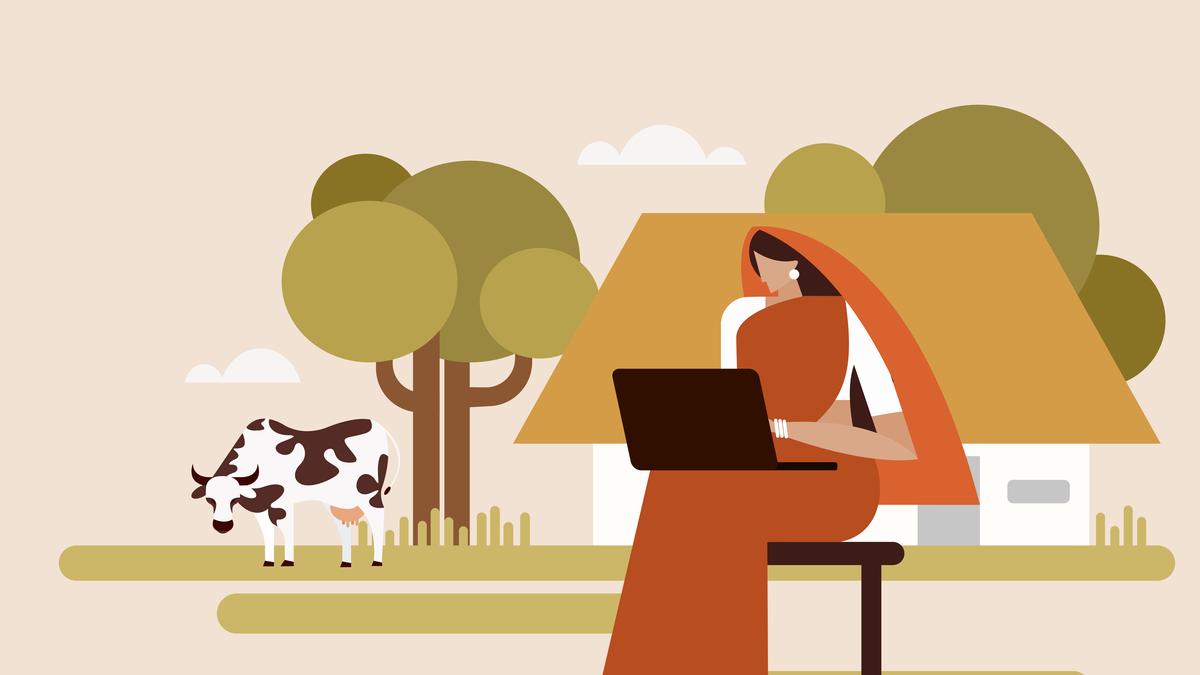The Beijing Declaration and Platform for Action is one of the most comprehensive global blueprints for advancing women’s rights. India’s progress on gender equality stands as a testament to sustained policy efforts, grassroots movements, and the resilience of women and girls.
The Beijing meeting, in 1995, brought together world leaders and 17,000 delegates from 189 countries to agree on a road map to accelerate women’s equality through 12 critical “areas of concern”. More than 200 Indian women were in attendance along with the Government of India. The areas of concern included poverty reduction, education and training, health, violence against women, women’s economic empowerment and influence in decision making. The past three decades have witnessed remarkable strides in many of these dimensions.
Visible evidence of change
The expansion of maternal health care under initiatives such as the Pradhan Mantri Surakshit Matritva Abhiyan and the Pradhan Mantri Matru Vandana Yojana has increased institutional deliveries to 95%. Maternal mortality has dropped from 130 to 97 deaths per 1,00,000 births between 2014 and 2020 (Sample Registration System data). Today, over half of married women (56.5%) choose to use modern contraceptives, giving them greater control over their reproductive health.
The Ayushman Bharat Pradhan Mantri Jan Arogya Yojana, the world’s largest government-funded health-care scheme, has provided millions of women with free access to critical medical treatment. Education, a core pillar of the Beijing Platform for Action, has seen notable progress. The ‘Beti Bachao Beti Padhao’ (BBBP) initiative has played a pivotal role in improving the child sex ratio and increasing school enrolments for girls.
The National Education Policy 2020 has paved the way for higher retention rates and opportunities in the fields of science, technology, engineering, and mathematics (STEM). Though safety concerns in higher secondary education remain in some places, the Ministry of Education has integrated education with skills development and life skills training, charting flexible and inclusive pathways for adolescents. UNICEF has been able to provide support in increasing linkages with broader support systems — improved sanitation reducing menstruation related absences.
Also read | India’s progress in women empowerment: an unfinished journey
Women’s economic empowerment has been central to India’s gender-equality agenda. Through the National Rural and Urban Livelihood Missions, nearly 100 million women have been connected to financial networks via self-help groups, fostering entrepreneurship and financial independence. The Unified Payments Interface (UPI) has revolutionised financial transactions, with women increasingly using digital platforms for savings and investments.
The Deendayal Antyodaya Yojana–National Rural Livelihood Mission has empowered over 100 million rural women through access to credit, livelihood opportunities, and financial literacy programmes. The Pradhan Mantri Gramin Digital Saksharta Abhiyan has trained over 35 million rural women in digital literacy, ensuring that they are not left behind in the digital revolution. Bridging the digital gender divide has helped women participate in the digital economy.
Also read | The missing women in Indian politics
India has increasingly financed women’s empowerment through gender-responsive budgeting. The share of the Gender Budget in the total national Budget has increased from 6.8% in 2024-25 to 8.8% in 2025-26; $55.2 billion is allocated toward gender-specific programmes. UN Women has been able to provide support for these government efforts.
The shadow of violence
Gender-based violence remains a challenge. The Beijing Declaration called for ending violence against women, yet many women still face violence, here and across the world. The establishment of 770 One Stop Centres has provided essential medical, legal, and psychological support to survivors of violence. The introduction of the Bharatiya Nyaya Sanhita 2023, which came into effect in July 2024, strengthens legal protections and improves women’s safety and justice.
The country’s efforts to eliminate harmful practices and strengthen responses include many innovations — a blockchain-based system in Odisha ensures that survivors receive swift, confidential, and coordinated support. Partnerships such as the one between the United Nations Population Fund and the Rajasthan Police Academy, have enhanced gender-responsive policing, building survivor trust, and expanding access to justice.
A powerful force for change lies in the leadership of young women. From climate action to digital entrepreneurship, young leaders are redefining gender.
Initiatives such as the Gender Advancement for Transforming Institutions (GATI) project, which promotes women in STEM, and the G20 TechEquity platform, which has trained thousands of young women in emerging technologies, showcase their potential.
Women have played a pivotal role in India’s transformation, driving change, from technology and entrepreneurship to governance and social development. The Women’s Reservation Bill, which guarantees 33% legislative representation, builds on local governance successes that have empowered close to 1.5 million women leaders, the largest cohort of women political leaders in the world.
A guiding framework
The 30th anniversary of the Beijing Declaration reinforces that gender equality is not just a women’s issue. It is a global imperative. India’s progress has been propelled by strong government leadership and capable partners, both local and global. Strengthening collaborations, investing in young women’s leadership, and addressing systemic barriers will be key to accelerating action and progress.
The Beijing Platform for Action remains a guiding framework as India continues its journey toward gender equality.
With an unwavering commitment to women-led development, financial inclusion, and social transformation, India is setting a global benchmark for inclusive and sustainable growth — one that is needed in the world today, now more than ever.
Susan Ferguson is the Country Representative for UN Women in India, and is a part of Team UN in India. Cynthia McCaffrey is the Country Representative for UNICEF in India, and is a part of Team UN in India
Published – March 07, 2025 12:08 am IST
